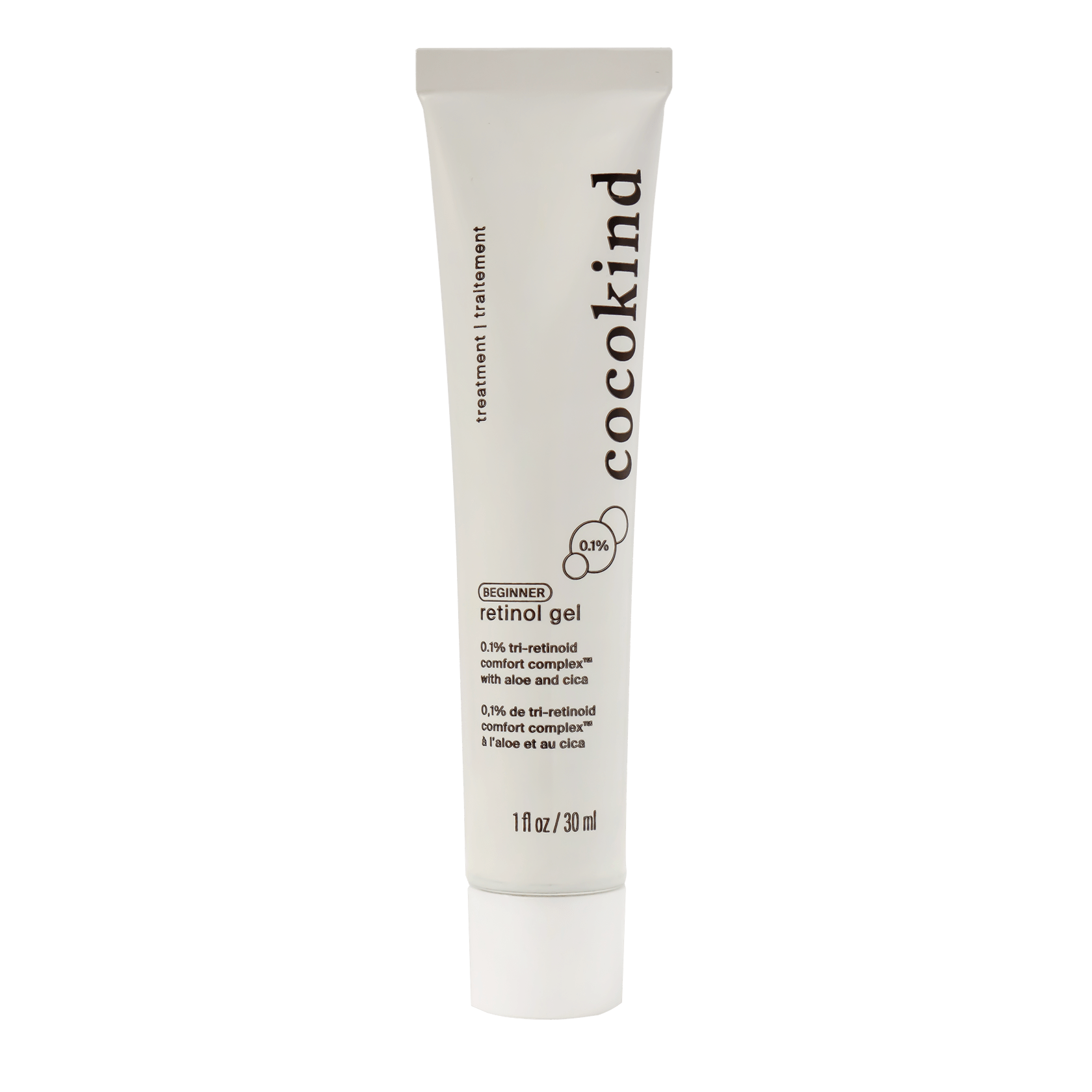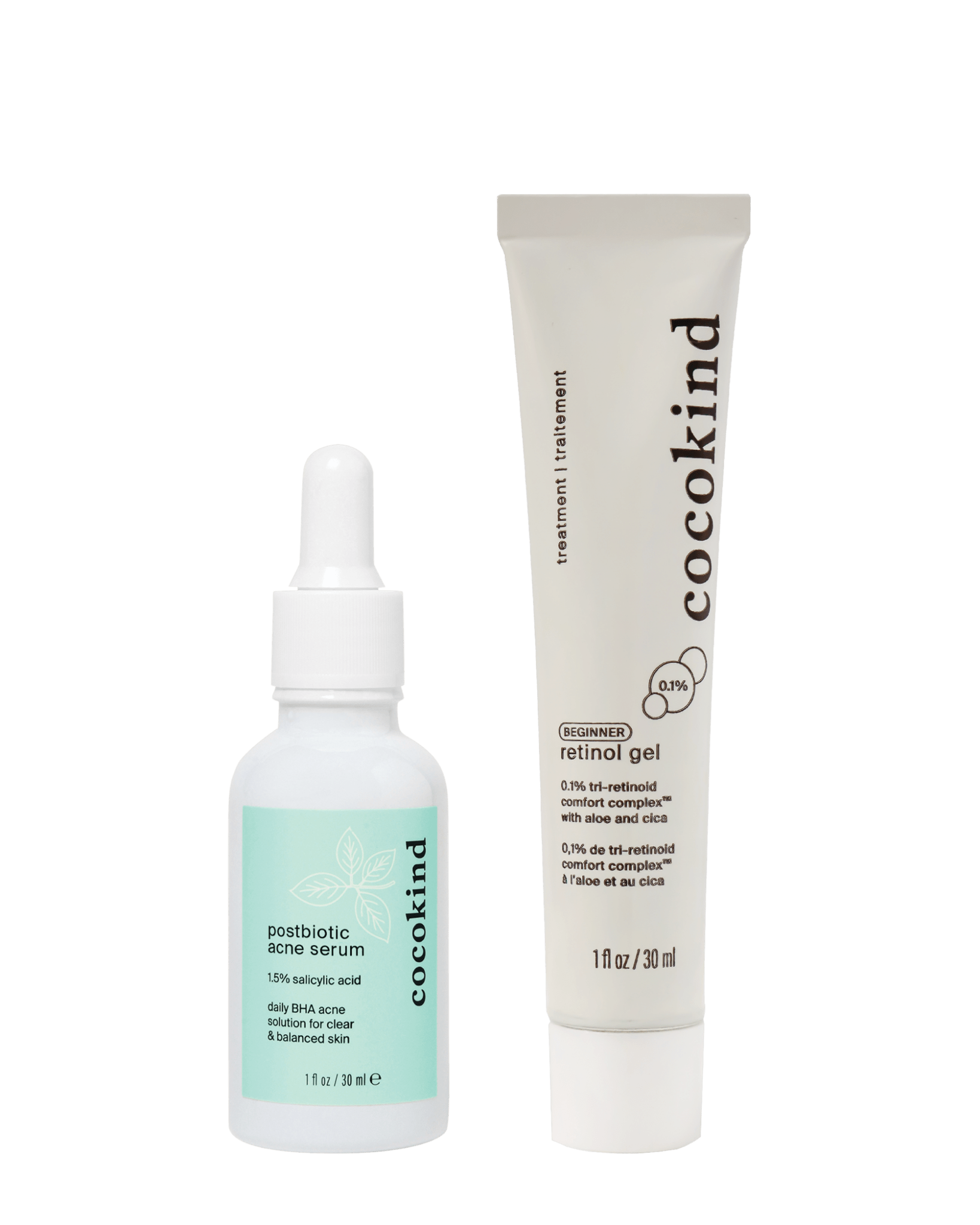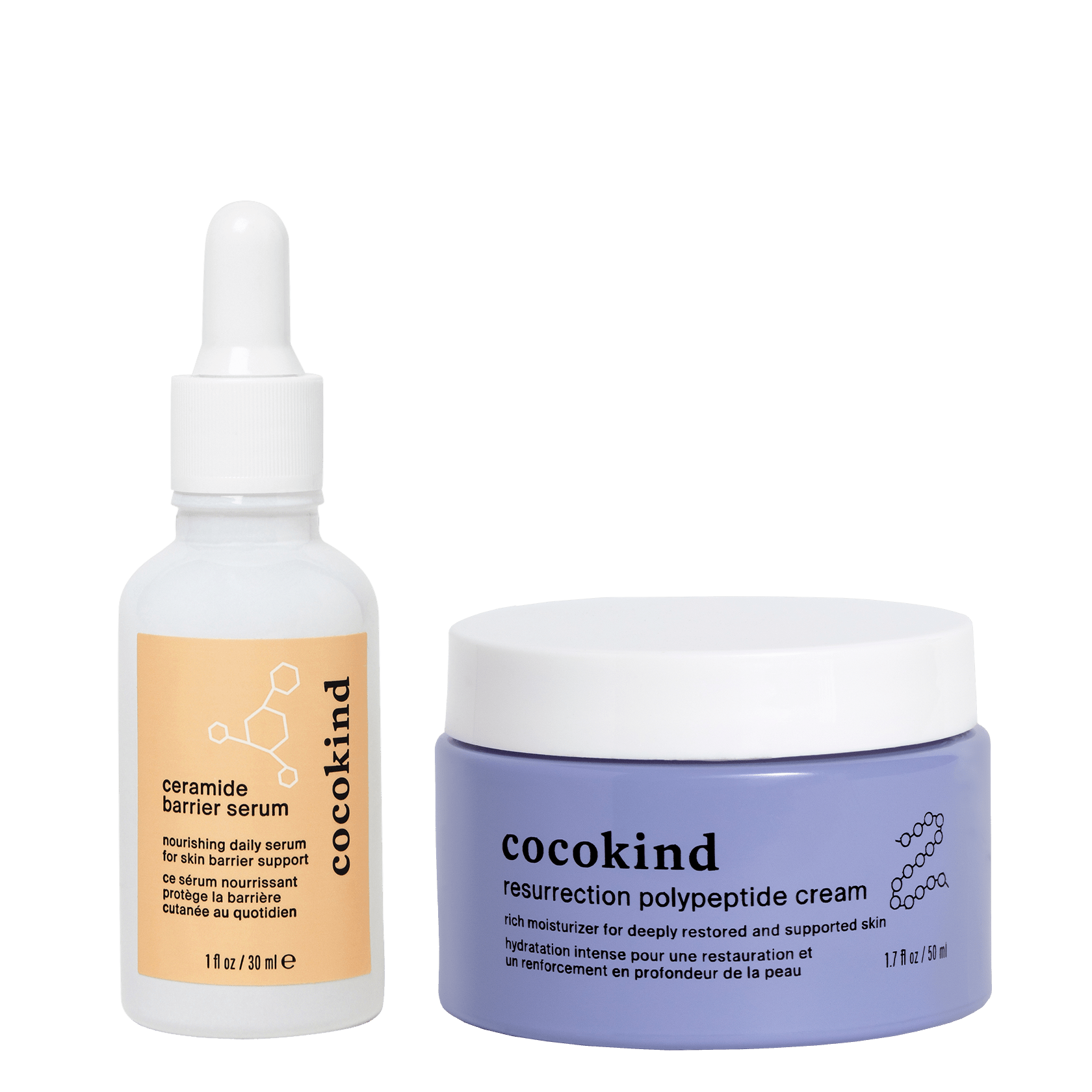There's a lot of buzz around retinol, and for good reason! With an ingredient this powerful, there is also a lot of misinformation floating around. We're setting the record straight once and for all and breaking down the top 3 retinol myths you shouldn't believe.
Retinol can do wonders for aging and acne-prone skin, from preventing fine lines to enhancing overall texture and firmness. Yet, along with its benefits, retinol has also collected its fair share of myths and misconceptions. In this blog, we'll tackle three common retinol myths: the belief that retinol thins skin, that it's an exfoliant, and that it can’t be used nightly. Plus, we'll explain why our beginner-friendly formula is the best option for getting all the amazing benefits retinol has to offer but without irritation.
Myth 1: Retinol Thins Your Skin
One of the most persistent myths surrounding retinol is that it thins the skin. This misconception may have started because some formulas* can cause initial dryness or peeling when people first start using retinol. In reality, retinol's actual effect on the skin is quite the opposite. It stimulates collagen production, thereby thickening the dermis - the deeper layers of the skin. Additionally, it promotes cell turnover, encouraging the shedding of dead skin cells. So, rather than thinning the skin, retinol can actually help make it thicker and healthier over time.
*As a side note, you don't have to worry about dryness and irritation with our Beginner Retinol Gel, 0.1%, as it was specifically formulated to minimize side effects. Since there's a higher percentage our Tri-Retinoid Comfort Complex in the advanced retinol gel, 0.5%, irritation might be more common, however the formula is buffered with aloe, cica, and squalane to help prevent excessive dryness.
Myth 2: Retinol is an Exfoliant
Another misconception is that retinol is an exfoliant. While retinol does promote cell turnover, it's not an exfoliant in the traditional sense. Exfoliants like alpha hydroxy acids (AHAs) and beta hydroxy acids (BHAs) work by physically removing dead skin cells from the surface of the skin. Retinol, on the other hand, works more by encouraging the natural shedding of skin cells. This helps remove dull skin and can unclog pores, making skin smoother and reducing the risk of breakouts.
Myth 3: You Shouldn’t Use Retinol Nightly
One of the viral skin care methods on TikTok recently was to follow a “skin cycling” routine when using retinol. This involves using retinol every other night or even less frequently to minimize potential irritation. While this approach can be effective for those using a high percentage, it may not be necessary when using a gentle, beginner-friendly retinol formula.
When you start out low and slow with retinol, your skin will adjust overtime and you can begin incorporating more frequently in your routine. Everyone’s skin is different so retinol isn’t one-size-fits-all. As a general rule of thumb, Beginner Retinol Gel, 0.1% can be used every other night to start, gradually working up to nightly usage when your skin feels ready. As for our Advanced Retinol Gel with a 0.5% formula, we recommend starting with 2-3 applications per week in the evening, and increasing use as tolerated.
- Kind Skincare Tip: you can use 2-3 drops of Ceramide Barrier Serum before applying Advanced or Beginner Retinol Gel for added comfort!
In conclusion, retinol is one of the best ingredients out there for aging and acne-prone skin, and by busting these common myths, we hope to make your journey into retinol easier! Remember, it's all about selecting the right product and sticking to a consistent routine that works best for your skin.



